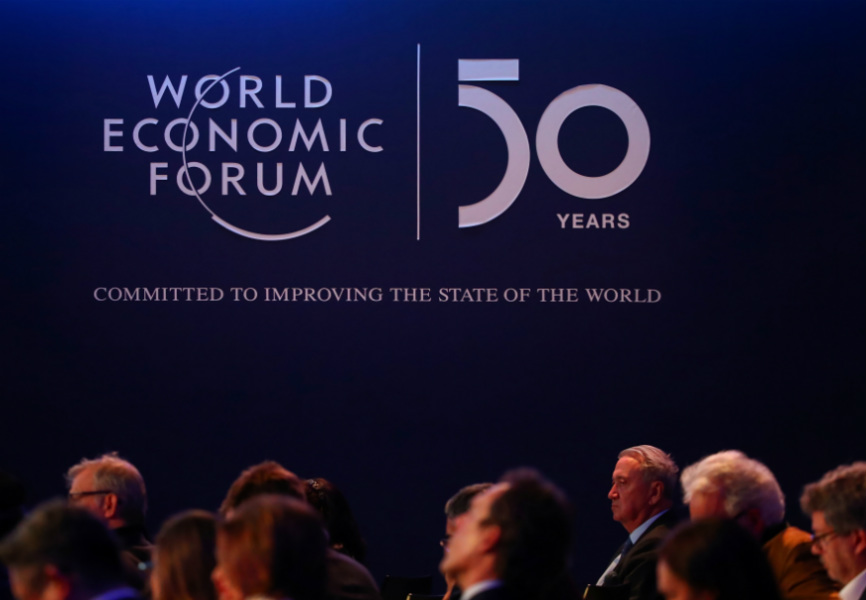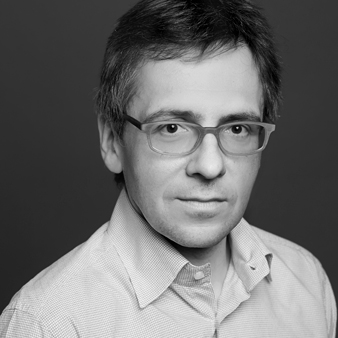What sort of leader do people want? Do they want someone who will inspire citizens to accept that short-term pain for some will mean long-term gain for all? Or do they want someone who believes that broadly shared well-being is more important than dynamic growth?
As we open a new decade, this question takes on greater urgency. Balancing the need to generate growth for the next generation and the need to mend fraying social safety nets must be a central topic at the 2020 World Economic Forum in Davos.
Most of the political and business leaders who descend on Davos each January have long argued that prosperity depends on a globalist approach: free flows of trade and investment, frictionless borders, and a mobile workforce are crucial. That's how you stoke the economic growth that provides governments with the revenue they need to pay pensions, subsidize health care, and create opportunities for those who don't have them. That's also how companies generate the profits that help them create jobs, provide benefits, and invest in the future. And from a social justice perspective, citizens in prosperous societies have better human-rights protections than those in poorer ones.
There are strong arguments for this view. More than a billion people have risen from poverty in recent decades. From 1980 to 2016, incomes of the world's bottom 50% of earners nearly doubled. By some measures, more than half the world's people now qualify as “middle class.” People living in developing countries have more income, are better educated, and live longer and healthier lives than at any time in history. The unprecedented cross-border flows of information, goods, services, money and people that have defined the past 40 years deserve a lot of the credit.
Yet gains for the super poor, or even the global bottom half, can't obscure the reality that middle classes in developed countries are under increasing pressure. As Abhijit Banerjee and Esther Duflo note in the current edition of
Foreign Affairs, as the world's richest 1% captured an ever larger share of the world's wealth: “The 49% of people below them, which includes almost everybody in the United States and Europe, lost out, and their incomes stagnated.” Many of these people believe that the economic game is rigged to favor an unaccountable elite and that globalization's gains have been stolen from them. This trend has made
globalization a dirty word for millions of people and upended many countries.
Even among national leaders elected to bring about change, the differences in economic (and political) philosophy are obvious. In Mexico, Andres Manuel Lopez Obrador has promised “transformation,” but he has no credible plan to tackle increasing violent crime in his country. By acknowledging the needs of people who feel they've long been ignored, investing in better infrastructure, helping to create jobs for many who need them, and boosting the minimum wage, Lopez Obrador has maintained sky-high popularity.
Then there's Brazil's Jair Bolsonaro, a man delivering on exactly the kind of economic reforms that restore international confidence. But his confrontational approach on social questions—particularly those involving women's and gay rights and the environment—have inflamed the country.
What happens if leaders promising reform never produce the promised results? In recent months, we've had a look as that scenario plays out in India. Two years ago, Prime Minister Narendra Modi wowed the Davos crowd with a compelling keynote address. Since then, India's growth has slowed sharply and Modi's government has expanded his nationalist politics. Protests have erupted across the country, and the government's response has been severe.
How to balance prudence with the expectation that government will boost and protect the well-being of all citizens? And what happens when tough times incentivize politics that divide nations and undermine future growth? These are the questions that Davos attendees must wrestle with.
This was originally published by TIME. TIME's Davos 2020 issue was produced in partnership with the World Economic Forum.
To learn more, watch Ian Bremmer's Bloomberg interview on the sidelines of the 2020 World Economic Forum in Davos.

 Attendees at the 2020 World Economic Forum in Davos, Switzerland. REUTERS.
Attendees at the 2020 World Economic Forum in Davos, Switzerland. REUTERS.
